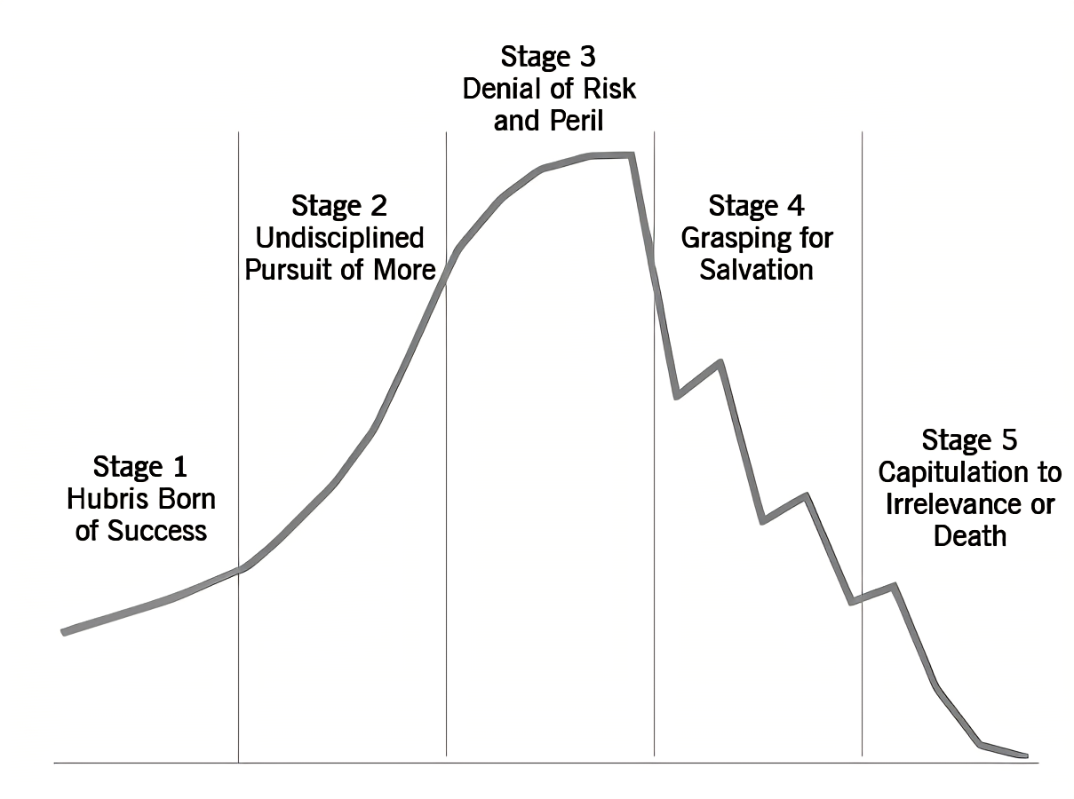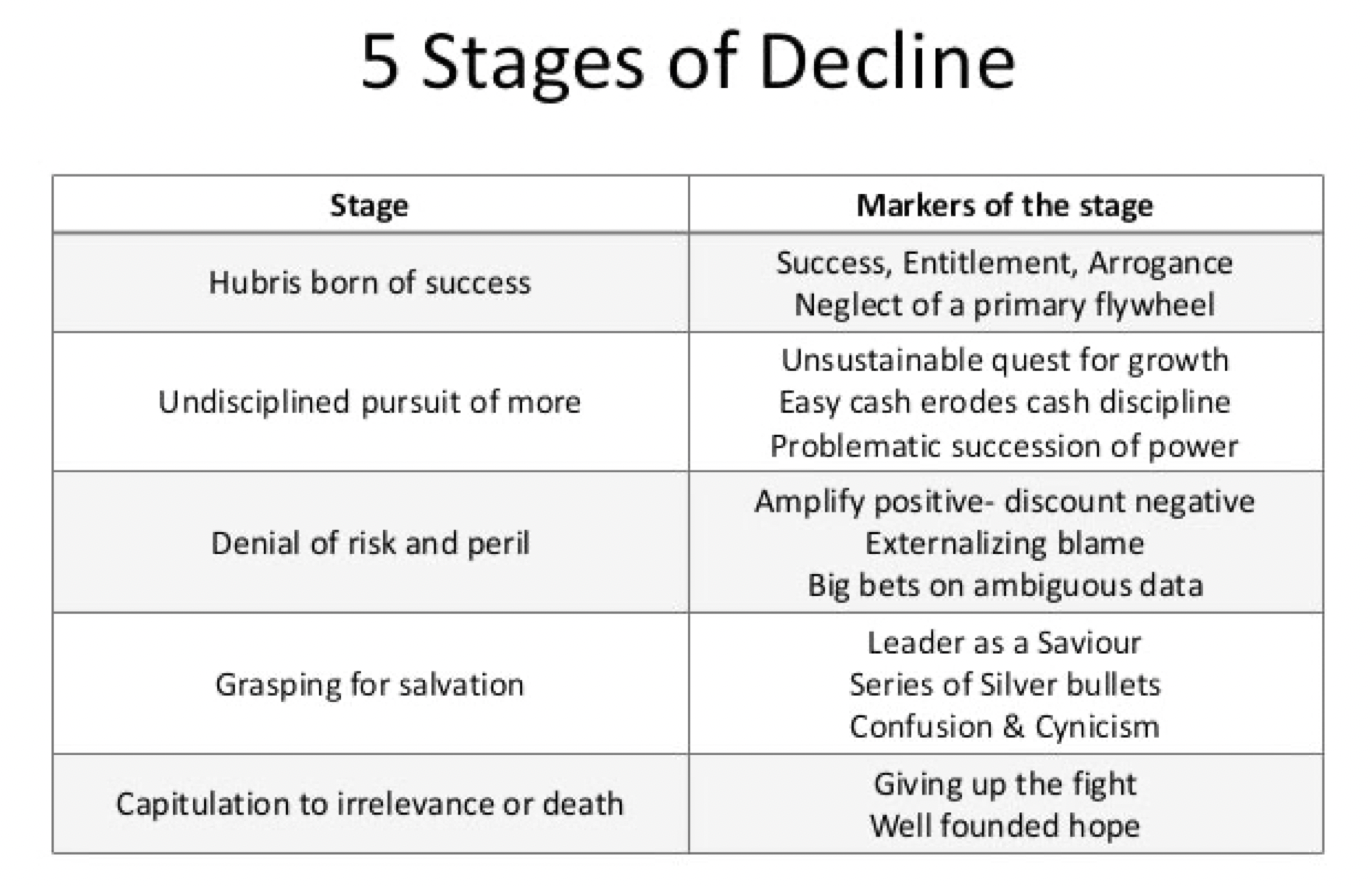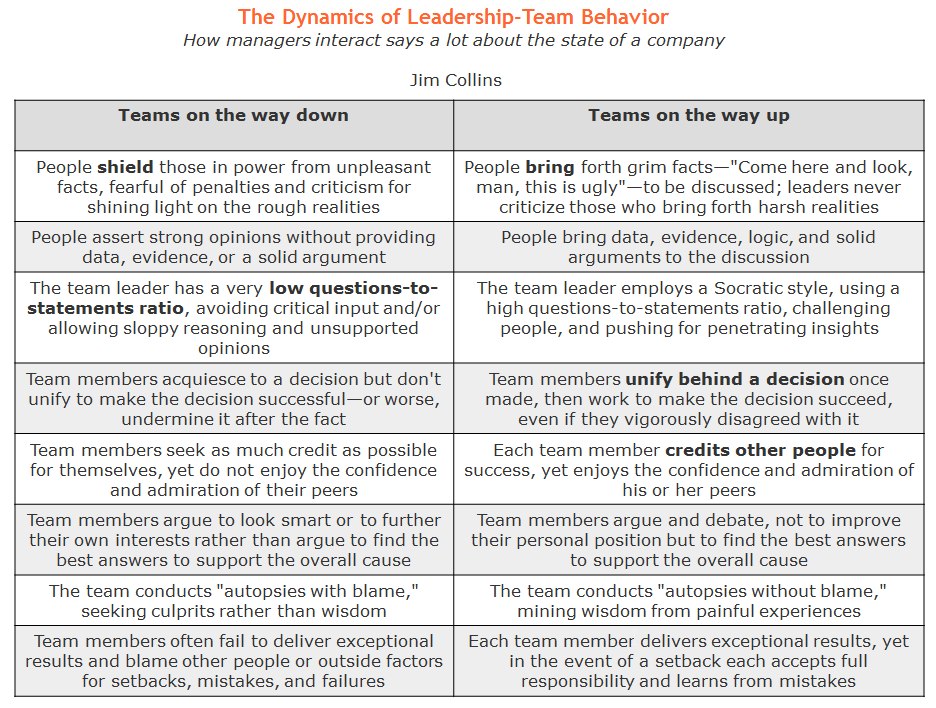How The Mighty Fall – A Primer for Successful Leadership
As leaders of families, teams, companies, platoons, churches or any organization, learning what NOT to do is just as important as learning what to do.
“Every institution, no matter how great, is vulnerable to decline”
– Jim Collins
In 2009, Dave Ramsey and his team gifted me with a small library of leadership books. One stood out from the rest. If you walk into my home office or my office at the church or search my backpack, there is a high probability you’ll find a Bible and this one small book.
Fast forward to 2016.
I was in a conference room in Dallas with Dave Ramsey, Patrick Lencioni, Seth Godin, George W. Bush, and Jim Collins. I put a question to Jim Collins (bestselling author and speaker). “Jim, what is the best book you have written to date?” I fully expected him to reply, “Built to Last” or “Good to Great.” Both are excellent books. However, I was surprised by his answer. He replied without hesitation, “The best book I’ve written is a little book entitled “How the Mighty Fall” (2009).” Jim went on to explain that if we don’t know why and how great organizations fall, we won’t know how to make a good organization into a great organization.
As leaders of families, teams, companies, platoons, churches or any organization, learning what NOT to do is just as important as learning what to do.
I have a long list of failures and mistakes I’ve made in business, ministry and leadership. I call them my “playbook of what NOT to do’s.” I joke with people and say, “If you learn from all of MY mistakes and failures, you will be successful!” Failure is a better teacher than success. Just as pain is a better teacher than pleasure.
“How The Mighty Fall and Why Some Companies Never Give In” is a primer to understanding how to be a good leader of any group of people, whether a Fortune 100 Company or your family. Even when we read our Bibles, it is replete with stories of failure. Each with its own lesson to teach us in our own historical moment.
Click on chart images in this post to open in a new window and enlarge and/or download if you wish.
Pride (hubris) always marks the beginning of the fall
Proverbs 16:18 clearly states, “Pride goes before destruction, and a haughty spirit before a fall.” This is true of individuals and organizations. Arrogance in the face of problems is incapable of seeing them in the first place. Pride blinds us to the truth. Past success does not promise future success. Failure to cultivate and renew the soils of traditions, values and competencies that led to initial success will create conditions for failure. When leaders replace “why” with “what” questions, they miss the opportunity for deeper reflection and basic understanding of why the organization was successful in the first place.
Most important of all is what Collins calls a “decline in learning orientation.”
“Leaders lose the inquisitiveness and learning orientation that mark those truly great individuals who, no matter how successful they become, maintain a learning curve as steep as when they first began their careers.” (Jim Collins, p. 43).
I would add that leaders must “read widely”, not just sticking to their side on a topic or their area of expertise. Read to understand counter or competing positions. Read and learn outside your career domain. When we are lifelong learners, we understand that we never completely arrive. The more we learn the more we understand our own inadequacies and limitations – allowing humility to invade our lives.
Are you on your way up or on your way down? The dynamics of Leadership-Team bahavior chart below is a helpful tool for determining where you are headed.
In conclusion, understanding a situation is a precondition to responding appropriately to a situation. As a leader, if you misdiagnose a problem, the solutions you create will harm the organization you are leading. The Bible tells us to “know the state of our flocks.” (Proverbs 27:23)
“Every institution, no matter how great, is vulnerable to decline… By understanding the stages of decline, leaders can substantially reduce their chances of falling all the way to the bottom.” – Jim Collins
Every once in a while, I put “How the Mighty Fall” back on my bookshelf. Somehow, it makes its way back on my desk or in my backpack. I’m thankful Jim Collins wrote this little book.



